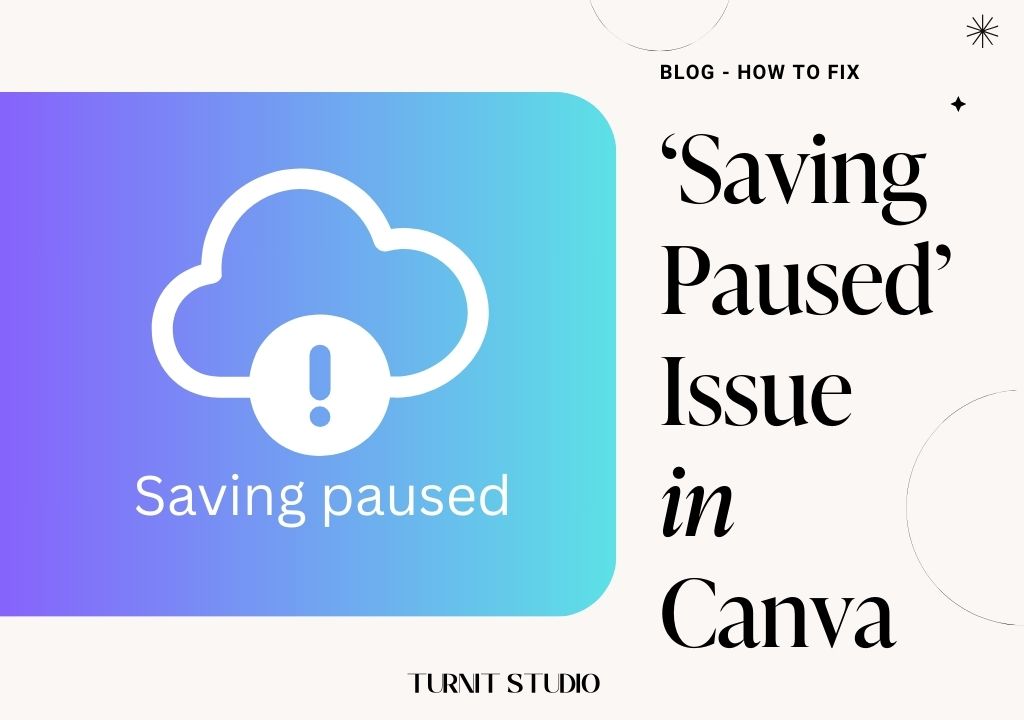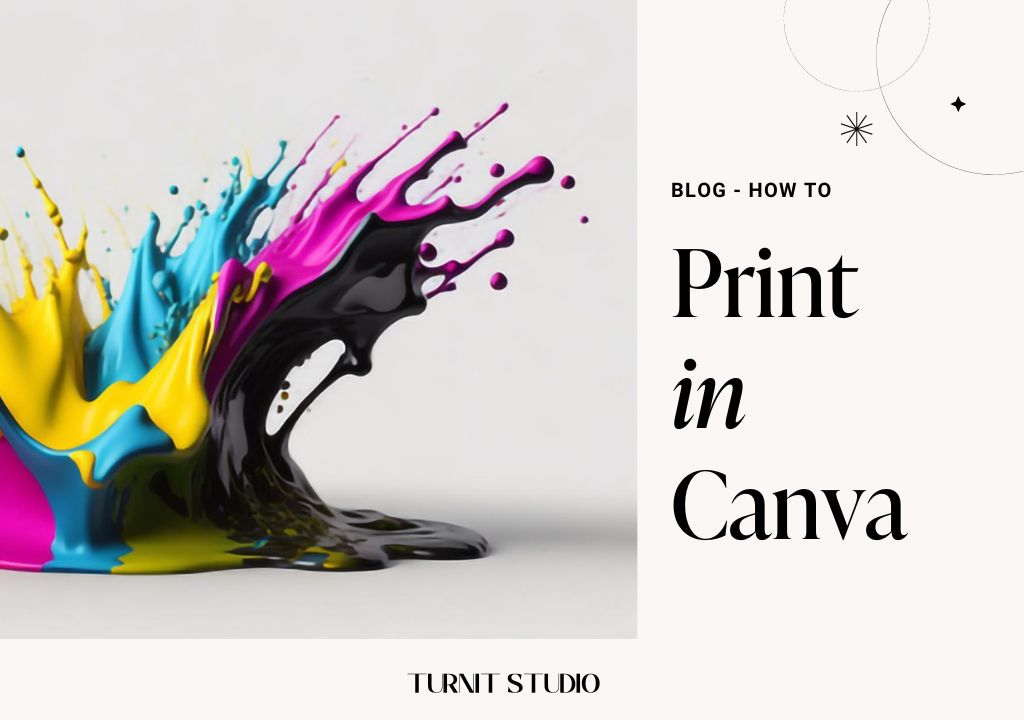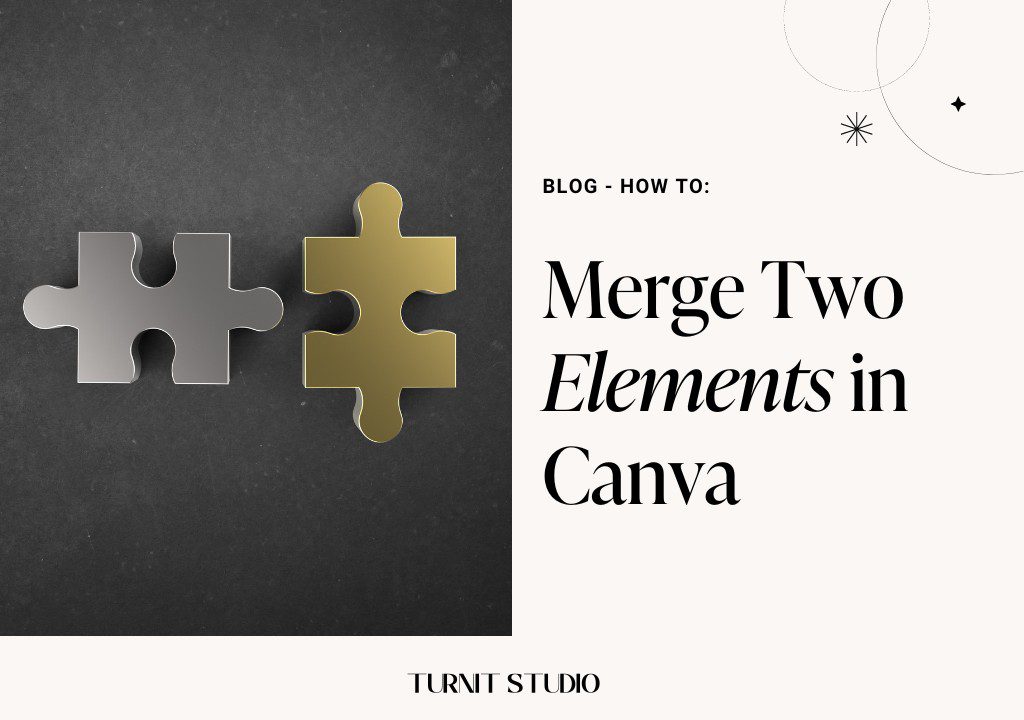Blog
How to Add Shadow to Product Images in canva Like a Pro
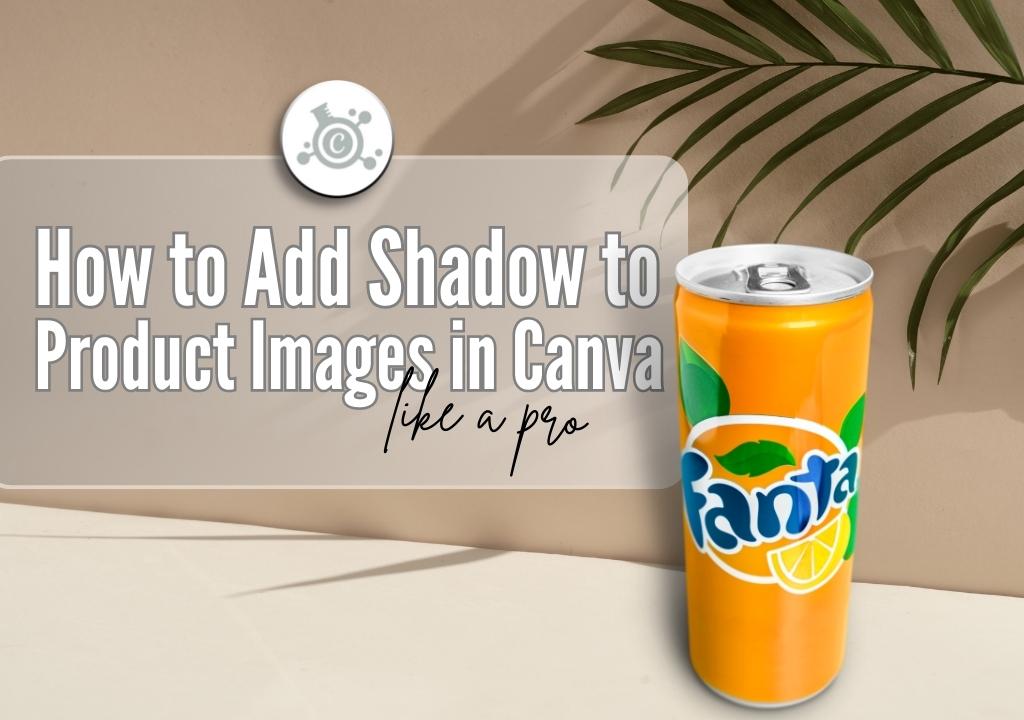
Adding shadow to product images in Canva is a simple yet effective way to make them stand out and appear more professional. Whether you're creating images for your online store or social media posts, here's a step-by-step guide on how to add shadow to your product images in Canva like a pro.
Canva is a user-friendly graphic design platform that offers a wide range of templates and design elements to create stunning visuals for social media marketing. Adding a shadow effect to product images can make them stand out and appear more professional. It can also improve the image quality and make them more visually appealing to potential customers.
Step 1: Choose a Canva Template
The first step in adding a shadow effect to product images in Canva is to choose a template that suits your needs. Canva offers a variety of templates for different social media platforms, including Facebook, Instagram, Twitter, and Pinterest. You can also choose a custom size if you want to create a unique design.
When choosing a template, it's important to consider the purpose of your design. Are you creating an image for a product launch, a sale, or a social media post? Each template has its own unique layout and design elements that can help you achieve your desired outcome.
Step 2: Upload Your Product Image
Once you have chosen a template, the next step is to upload your product image. You can do this by clicking on the "Upload files" tab on the left-hand side of the screen and selecting the image you want to use. You can also drag and drop the image directly onto the template.
When uploading your product image, it's important to consider the image quality. A high-quality image will look better with a shadow effect and will be more visually appealing to potential customers. Make sure your image is clear, in focus, and has good lighting.
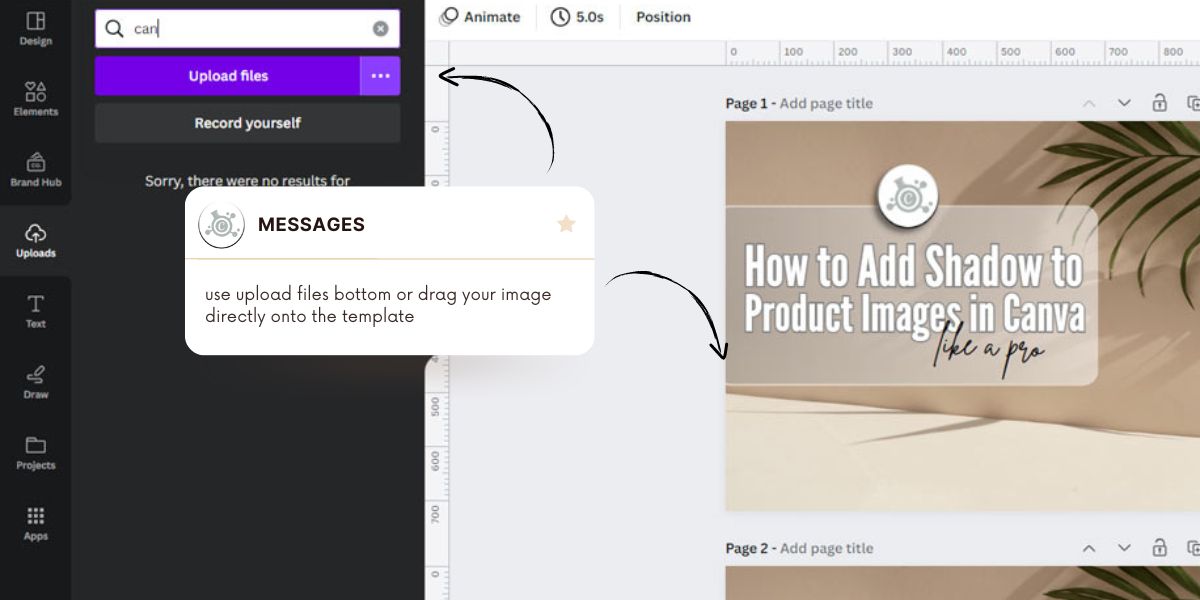
Step 3: Add a Shadow Effect
To add a shadow effect to your product image, select the image and click on the "Effects" tab on the top toolbar. From there, select the "Shadow" option. Canva offers several shadow effects to choose from, including drop shadow, inner shadow, and perspective shadow.
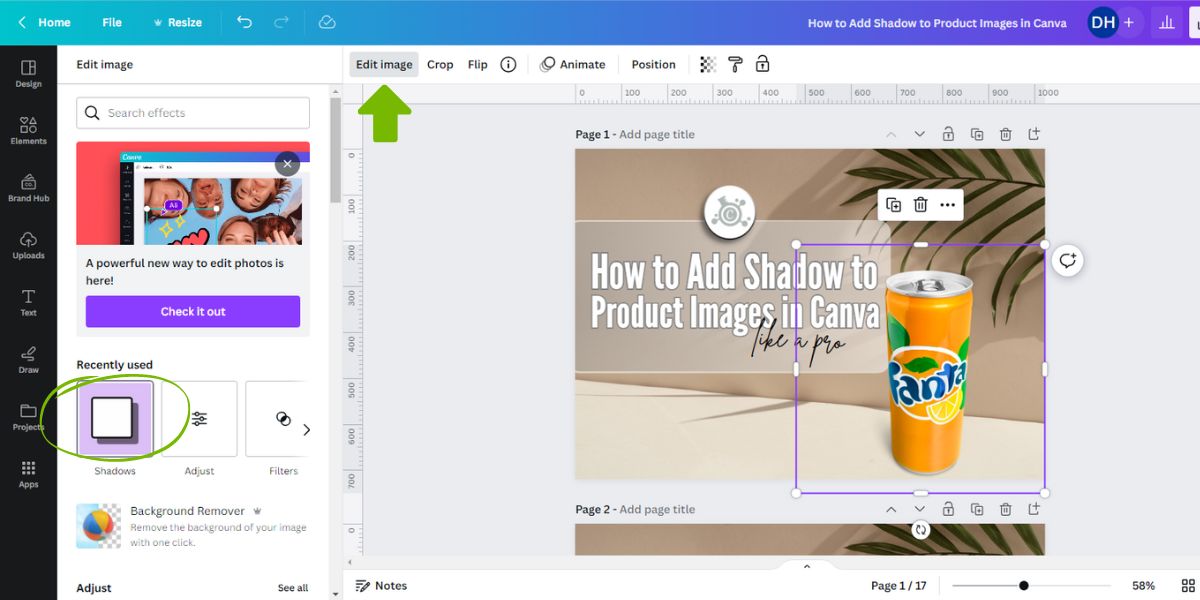
When choosing a shadow effect, it's important to consider the style of your design. A drop shadow effect can create a subtle and natural-looking shadow, while an inner shadow effect can create a more dramatic and stylized effect. A Backdrop shadow effect can create a 3D effect and make your product image appear more dynamic.
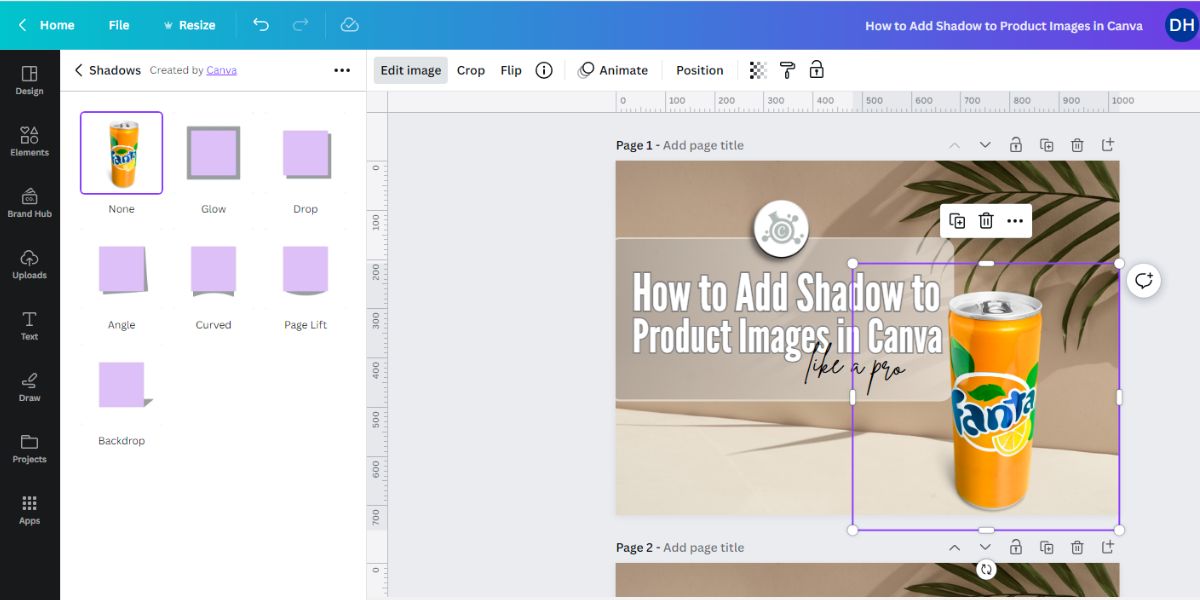
Step 4: Customize the Shadow Effect
Once you have selected the shadow effect you want to use, you can customize it to suit your needs. Canva allows you to adjust the opacity, blur, angle, distance, and color of the shadow effect. You can also preview the changes in real-time to see how they will affect the image.
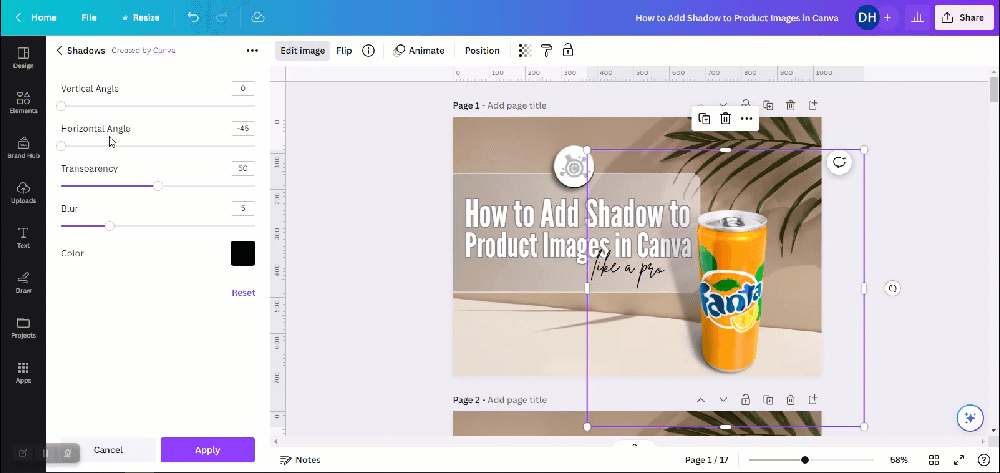
Vertical Angle:
The angle of the shadow effect determines the direction of the shadow. You can adjust the angle to create a more natural-looking shadow that matches the lighting in your image.
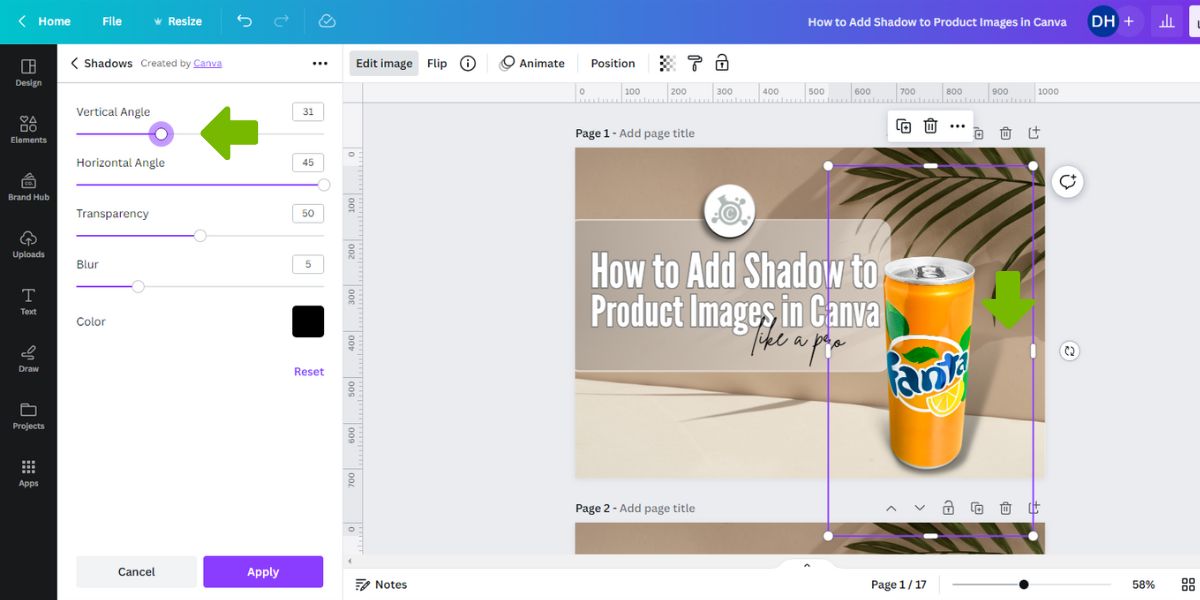
Horizontal Angle:
The angle of the shadow effect determines the direction of the shadow. You can adjust the angle to create a more natural-looking shadow that matches the lighting in your image.
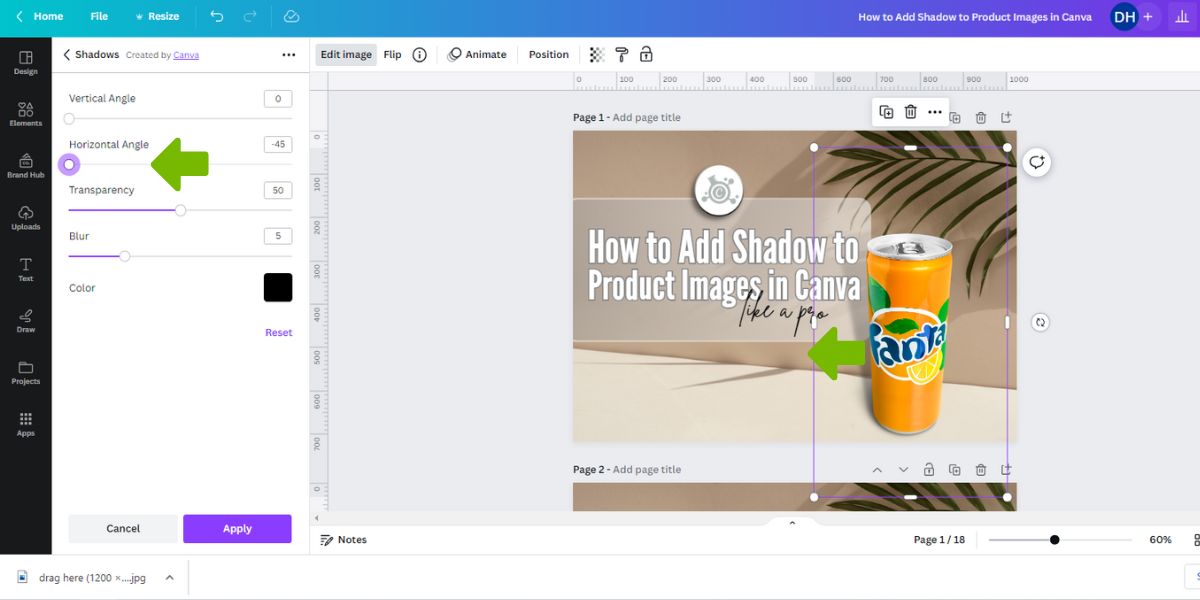
Transparency:
The opacity of the shadow effect determines how transparent or opaque the shadow will be. A higher opacity will make the shadow more visible, while a lower opacity will make it more subtle.
Blur:
The blur of the shadow effect determines how soft or sharp the edges of the shadow will be. A higher blur will make the edges of the shadow softer, while a lower blur will make them sharper.
Color:
The color of the shadow effect determines the color of the shadow. You can choose a color that matches the background of your design or a contrasting color to make the shadow stand out.
Step 5: Save and Export Your Image
Once you are satisfied with the shadow effect, you can save and export your image. Canva allows you to download your design in various formats, including PNG, JPG, and PDF. You can also share your design directly on social media platforms like Facebook, Twitter, and Pinterest.
When saving and exporting your image, it's important to consider the file size and format. A high-quality image with a large file size can slow down your website or social media page, so it's important to optimize your image for web use. You can do this by compressing the image or choosing a smaller file size.
Conclusion
Adding a shadow effect to product images in Canva is a simple and effective way to enhance their visual appeal and improve their image quality. Canva offers a wide range of customizable templates and design elements to create stunning visuals for social media marketing.
By following the steps outlined in this article, you can easily add a shadow effect to your product images and create visually appealing content for your social media marketing campaigns.
Remember to choose a template that suits your needs, upload a high-quality product image, choose a shadow effect that matches your design style, customize the shadow effect to suit your needs, and save and export your image in a web-friendly format. With these tips, you can create stunning product images that will attract and engage your audience on social media.






